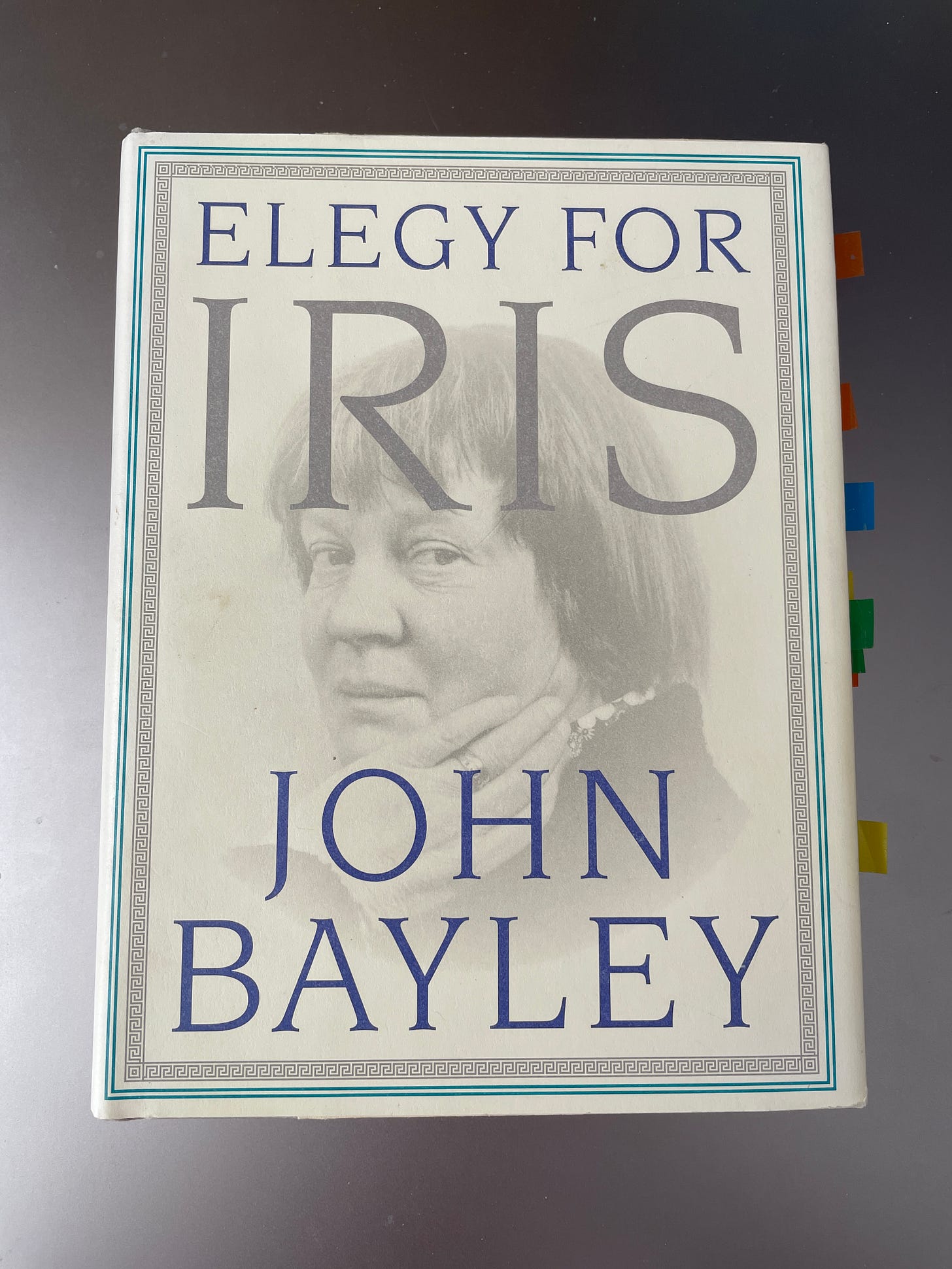Get Ready for Elegy for Iris: Lesson 17
Biography, memoir and the risks we face as writers
A film clip to start us off:
John Bayley wrote Elegy for Iris after his wife, celebrated novelist and thinker Iris Murdoch, had succumbed to the ravages of Alzheimer’s disease. It’s a memoir written without her permission and with the certainty she would never read it. Some Mary Tabor "Only connect ..." is a reader-supported publication. To receive all posts and support my work, become a paid subscriber:
We’ll discuss the risks we writers face: solipsism, absence from others and the possible invasion of the lives of those we love, care about — or don’t.
To get ready, buy the book or watch the movie—terrific flick—or do both! I did. To buy the book used go to Amazon. John Bayley has died (I don’t recommend buying books used by living authors because no one who matters gets what little is paid.) The second link is to Bayley’s obituary in The New York Times.
Consider these questions as you read:
Table of Contents for all 19 lessons
Keep reading with a 7-day free trial
Subscribe to Mary Tabor "Only connect ..." to keep reading this post and get 7 days of free access to the full post archives.



